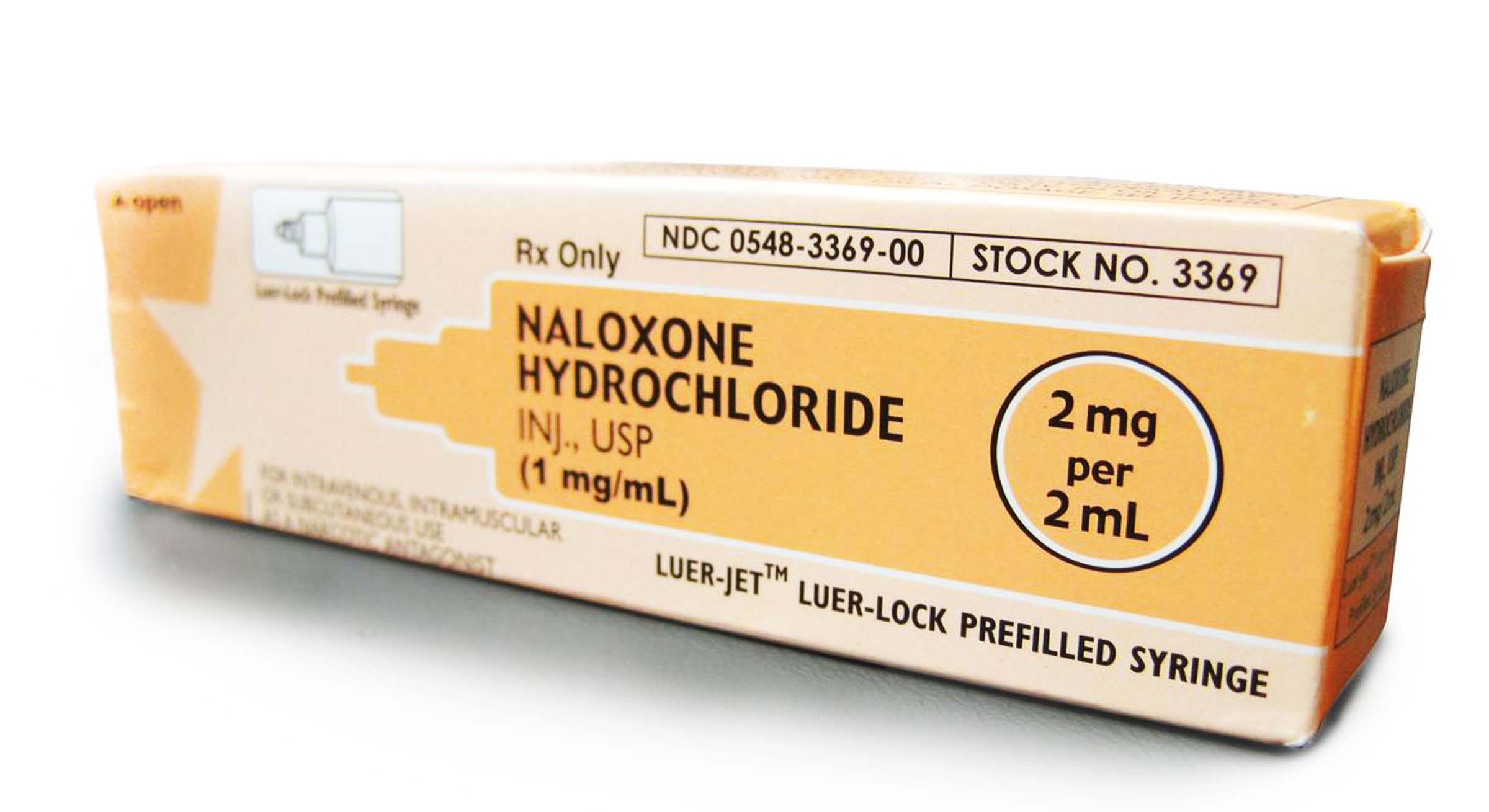PORT ANGELES — Beginning Friday, the scores of people who use Clallam County’s public health syringe exchange service — half of them self-reported heroin users — will have access to a potentially life-saving antidote.
It’s the first such program on the North Olympic Peninsula.
Clallam Health and Human Services has received a donation of naloxone (pronounced nuh-LOX-own), a drug that halts the effects of heroin overdose, public health program manager Christina Hurst said Thursday.
Kaleo, a pharmaceutical company based in Richmond, Va., made the grant for 100 doses of naloxone — $40,000 worth of medication — in prefilled, single-use auto-injectors.
Like Jefferson County Public Health, Clallam officials had planned to purchase the antidote later this year. And the Kaleo grant is just a start, Hurst added.
Jefferson County Public Health Director Jean Baldwin, meantime, has said her department hopes to have the drug by this fall.
In Port Angeles, “this is huge for us,” said Hurst, who added that Clallam’s health department has worked on a naloxone initiative for two years.
Yet 100 doses won’t match the need, she said.
In 2014, the Clallam County syringe exchange service logged 865 client contacts. That many people brought used needles and syringes in to the weekly exchange in order to get sterile ones for later use.
“Every year,” Hurst said, “we slightly increase.”
Of the people who visit the syringe exchange, 50 percent report injecting heroin, while 50 percent report using methamphetamine.
Mixing the two for a “speedball,” Hurst added, is not uncommon.
Death from prescription opioid and heroin overdose has become a top concern in Clallam’s communities, said Dr. Jeanette Stehr-Green, the county’s interim health officer.
The state’s 2013 overdose death rate was 14.8 per 100,000 people, she noted.
Clallam’s death rate was nearly twice that: 29.0.
Port Angeles police officers and Jefferson County emergency medical technicians already carry naloxone. Hurst said the police have used it to save four lives since March.
A private individual with a doctor’s prescription for the drug also can obtain it at a pharmacy, she added, noting that in May, Gov. Jay Inslee signed HB 1671, authorizing distribution of medicine such as naloxone to people at risk of a drug overdose.
The naloxone auto-injector, called Evzio, is simple to use but expensive, said Hurst.
Clallam Health and Human Services already has begun researching how it will purchase the next supply.
But naloxone only buys the patient some time; he or she must find medical care to recover from the overdose.
Hurst and her colleagues, of course, hope to connect with drug users before they face a life-and-death situation.
The naloxone kits could help. When a user comes to the syringe exchange and is offered the antidote, he or she will be asked to sign a contract and have a conversation.
“It gives us an ability to spend time,” said Hurst, “to build a relationship” and talk about what is happening in the client’s life, what may be standing in the way of finding treatment.
More information about Clallam’s syringe exchange and naloxone program is available, Hurst noted, by phoning 360-417-2274.
________
Features Editor Diane Urbani de la Paz can be reached at 360-452-2345, ext. 5062, or at diane.urbani@peninsuladailynews.com.

